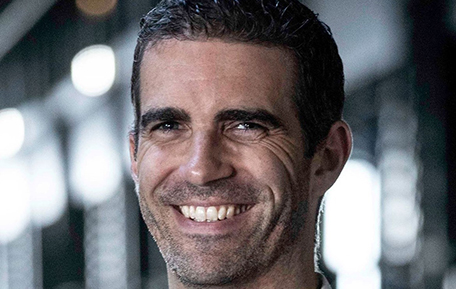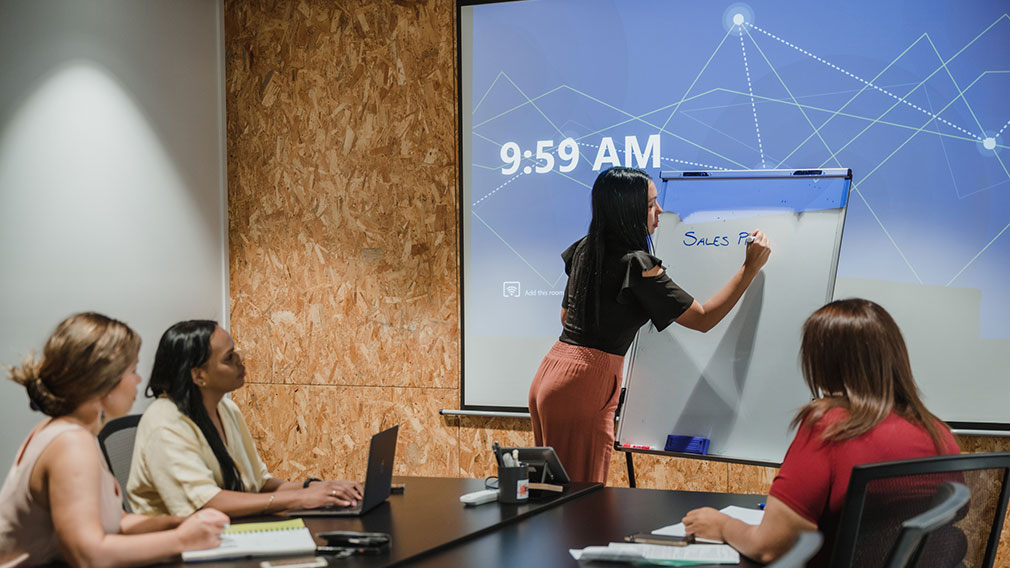Why good listening is about more than just staying quiet

Weak listening skills are often to blame for misunderstandings in the workplace, experts say. (Getty)
Many of us consider listening an innate skill, or even something that is effortless. It is therefore unsurprising that 96 per cent of people consider themselves good listeners, according to a survey by Accenture.
And yet, research shows that confidence in our listening abilities is often misplaced.
Weak listening skills impact approximately 70 per cent of all employees, a University of Southern California study found, often resulting in misunderstandings, mistakes, lost opportunities and blown-out timelines.
In the worst cases, arguments can ensue that cause lasting damage to relationships.
“The largest amount of our HR advisory work stems from miscommunications and interpersonal issues between team members,” says Kathryn MacMillan, Managing Director at CIRCLE Recruitment & HR.
“Oftentimes, if someone had stopped and really listened to the other person and not jumped to conclusions about what they thought was being said, the issue could have been avoided.”

Kathryn MacMillan, managing director of CIRCLE Recruitment and HR. (Supplied)
One of the reasons why listening well requires a conscious effort is due to the discrepancy between the speed of speaking versus thinking. The average person speaks about 135 to 175 words a minute but can listen to 500 words a minute.
When another person is talking, there is a tendency to fill the ‘extra’ time with thoughts about what to say next, or to privately ruminate on why they disagree with the speaker – or to think about something completely unrelated, like their next meeting or a daydream.
“On a Zoom call, it's especially easy to tune out and there's lots of distractions when you're at home,” says Huw Thomas, Strategic Transformational Leadership Expert at Huw H. Thomas & Associates.
“If you’re on a call with five or six people, you may think that you can surreptitiously look at your phone or read an email on another tab without anyone noticing.”
Active listening recognises that listening is not a passive activity that merely involves staying quiet. The term describes the ability to focus entirely on a speaker to understand their message and respond in a way that encourages further sharing.
It was coined back in the 1950s but is now considered an essential part of compassionate leadership and a cornerstone of critical thinking.
“Part of the reason why active listening is gaining a lot of currency lately is the complexity and fast-paced nature of work,” says Thomas.
“Organisations are highly complex and you can't know everything, so the ability to tap into many different expert views helps you make good decisions and serve your stakeholders better.”
One of the most common missteps he sees in this area is pretending to understand.
“Someone finishes talking and you say, ‘Okay,’ – but you don't really get it and don’t seek clarity. The other person assumes they were understood.”

Huw Thomas advises executives on leadership and change management. (Supplied)
MacMillan’s approach to cultivate active listening skills is to “listen with your ears, your eyes and your heart.”
“Listen for the tone as well as the content. Does it match? Watch their body language and facial expressions,” she suggests.
“Are they speaking rapidly and breathing fast? Can you empathise with what they are saying? You may disagree, but try to understand where they are coming from.”
Those who are natural talkers may need to work harder on remaining quiet until the other person has finished. It is an essential part of encouraging another person to continue speaking – both in the present moment and in the future. Resist the urge to jump in – even if it is to agree.
If it helps, use a notepad to jot down the points as the person is speaking, and prepare your own questions in advance. Tilting your head to the side conveys to the speaker that you're listening intently – though of course, it must not be contrived.
Thomas sees poor listening skills as arising from bad habits rather than any ill-intent. It is possible to improve listening skills with a change of mindset.
“Often our intentions are good: we want to be present, connect with others and understand them. We aren't necessarily thinking rationally about it. We don’t say to ourselves, ‘Right, I made time to have this conversation, so let’s make the most of it.’”
Instead, Thomas believes we often fall into a trap of being easily distracted or trying to multitask, which research shows is counterproductive.
“Before walking into a meeting or dialling in, think about who you are meeting and the purpose of the meeting,” he says.
“Take a breath and reset your mind from your last meeting or the other things that need to be done. That will keep you present.”



